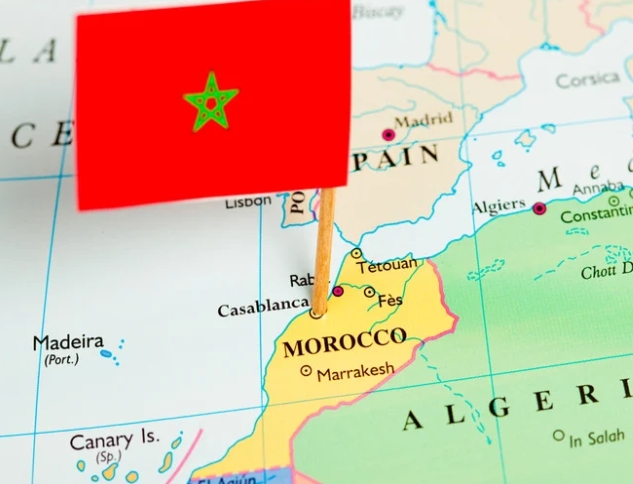Morocco Travel Guide
1. Introduction
- Overview
of Morocco (location in North Africa, mix of Arab, Berber, and European
influences)
- Why
visit Morocco? (historic medinas, Sahara Desert, mountains, beaches,
cuisine)
2. Types of Travel in Morocco
a. Solo Travel
- Safe
for experienced solo travelers; women may face extra attention
- Best
cities for solo exploration: Marrakech, Chefchaouen, Essaouira
- Tips:
Dress conservatively, avoid wandering medinas at night alone
b. Group Travel
- Ideal
for desert tours, cultural trips, and road adventures
- Group
riad bookings and guided medina tours available
- Great
for camel treks, Atlas Mountain hikes, and beach stays
c. Student Travel
- Growing
study-abroad programs (especially in Rabat, Fez, Marrakech)
- French
and Arabic language schools
- Affordable
living costs, rich cultural exposure
d. Business Travel
- Major
business cities: Casablanca (financial hub), Rabat (administrative
capital)
- Business
etiquette: formal attire, French/Arabic communication, punctuality
- Coworking
spaces in cities and stable mobile internet
3. Culture
- Blend
of Arab, Berber (Amazigh), and Islamic traditions
- Strong
emphasis on hospitality and family
- Key
festivals: Ramadan, Eid, Mawazine Music Festival, Gnaoua World Music
Festival
4. Food and Drink
- Must-try
dishes: Tagine, Couscous, Harira, Pastilla, Mechoui
- Popular
street food: Msemen (flatbread), brochettes, snail soup
- Drinks:
Mint tea (the national drink), fresh juices, avocado shakes
- Alcohol
is available discreetly (in certain restaurants and hotels)
5. Shopping
- Traditional
souks in Fez, Marrakech, and Tangier
- Bargaining
is expected
- Popular
items: Berber rugs, argan oil, leather goods, ceramics, spices, lanterns
6. Lifestyle
- Social
and religious culture guided by Islam
- Gender
roles are more traditional in rural areas
- Midday
breaks common, especially during hot months
- Friday
is the Islamic holy day; many businesses close in the afternoon
7. Language
- Official
languages: Arabic and Amazigh (Berber)
- French
widely spoken in cities and used in business/education
- English
is growing in popularity, especially in tourism
8. Best Time to Visit
- Spring
(March–May):
Pleasant weather, blooming valleys
- Autumn
(Sept–Nov):
Cooler temperatures and less tourism
- Summer
(June–Aug): Hot
inland; best for coastal towns and mountains
- Winter
(Dec–Feb): Snow
in the Atlas Mountains; mild along the coast
9. Best Things to Do
- Wander
the medinas of Fez and Marrakech
- Camel
trek and camp in the Sahara Desert
- Visit
kasbahs and ksars (e.g., Ait Ben Haddou)
- Surf
or relax in Essaouira and Taghazout
- Hike
in the High Atlas Mountains (e.g., Mount Toubkal)
- Enjoy
traditional hammams (public baths)
10. Best Attractions
- Jemaa
el-Fnaa Square (Marrakech)
- Medina
of Fez (UNESCO World Heritage Site)
- Hassan
II Mosque (Casablanca)
- Chefchaouen
(Blue City)
- Sahara
Desert (Merzouga, Erg Chebbi dunes)
- Ait
Ben Haddou (ancient fortified village)
- Atlas
Mountains
- Majorelle
Garden (Marrakech)
11. Suggested Itinerary
1-Week Itinerary (Culture & Desert)
- Day
1–2: Marrakech (medina, souks, Majorelle Garden)
- Day
3–4: Atlas Mountains or Ouarzazate (Ait Ben Haddou)
- Day
5–7: Merzouga (Sahara camel trek and desert camp)
2-Week Itinerary (Deep Dive)
- Includes
above, plus:
- Fez
(historical medina and tanneries)
- Chefchaouen
(1–2 nights)
- Essaouira
or Taghazout for beach time
- Optional:
Rabat or Casablanca for modern Morocco
12. Best Places for Vacation
- Marrakech: Lively, colorful, historical
- Fez: Authentic and ancient medina
experience
- Chefchaouen: Serene blue-painted town in the
Rif Mountains
- Essaouira: Coastal charm, seafood, and
surfing
- Merzouga: Gateway to Sahara adventures
- Agadir
or Taghazout:
Beach escapes with modern amenities
- Imlil: Base for trekking in the Atlas
Mountains
13. Recommended Morocco Travel Guide Books
- Lonely
Planet Morocco
- DK
Eyewitness Morocco
- Rick
Steves Snapshot: Morocco
- Culture
Smart! Morocco
– great for etiquette and cultural understanding
- The
Rough Guide to Morocco
14. Travel Essentials
- Passport
(valid for at least 6 months); many nationalities do not need a visa for
stays up to 90 days
- Travel
insurance
- Conservative
clothing (especially for women)
- Cash
(dirhams preferred; ATMs available in cities)
- SIM
card (Maroc Telecom, Orange, Inwi)
- Power
adapter (Type C and E, 220V)
15. Survival Travel Phrases (Moroccan Arabic / Darija)
- Salam
/ Salamu alaykum
– Hello / Peace be upon you
- Shukran – Thank you
- Bsh-hal
hada? – How
much is this?
- Fin
kayn…? – Where
is…?
- Ana
daye3(a) – I am
lost
- Ma
kanhderch l'arabia mezian – I don’t speak Arabic well
- Wakha – Okay
- Ma
fahmtsh – I
don’t understand
- Bghit
atay – I’d like
tea
- Safi – Enough / Stop











0 Comments